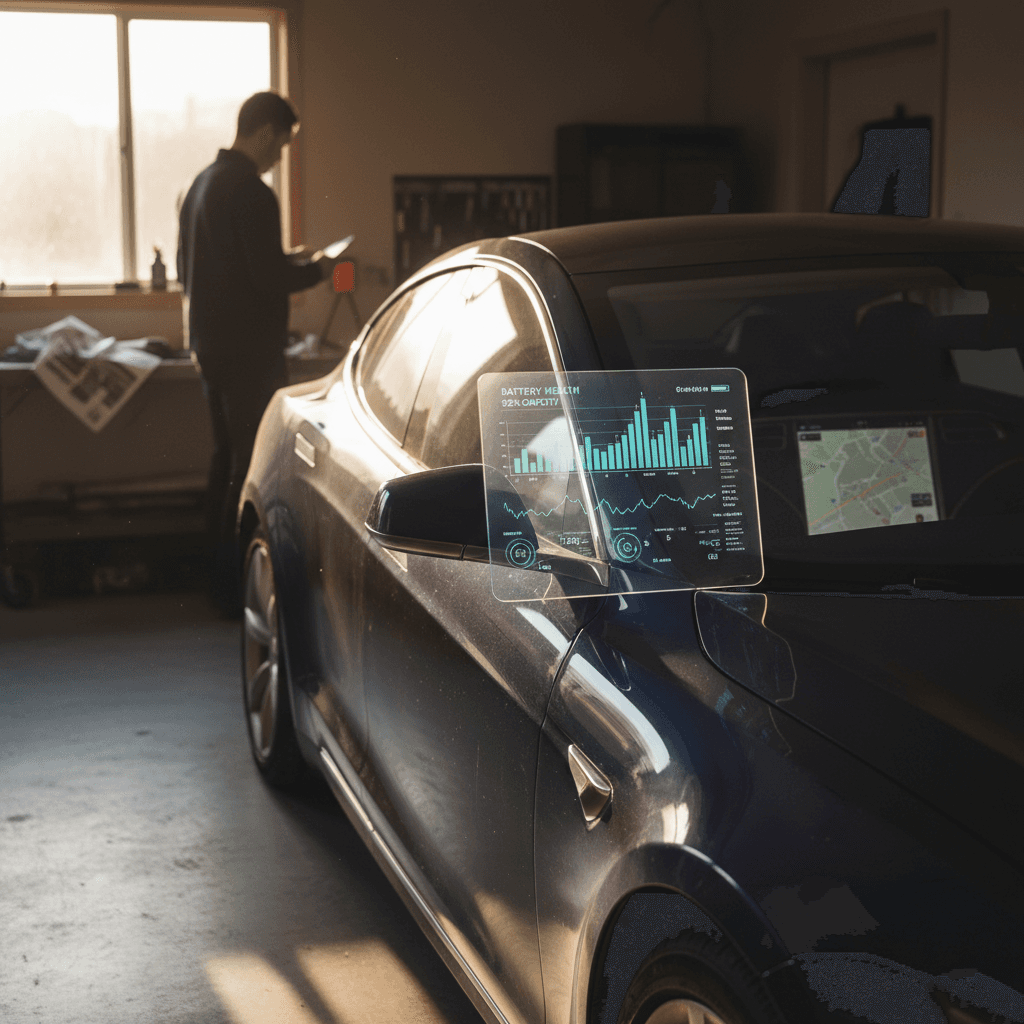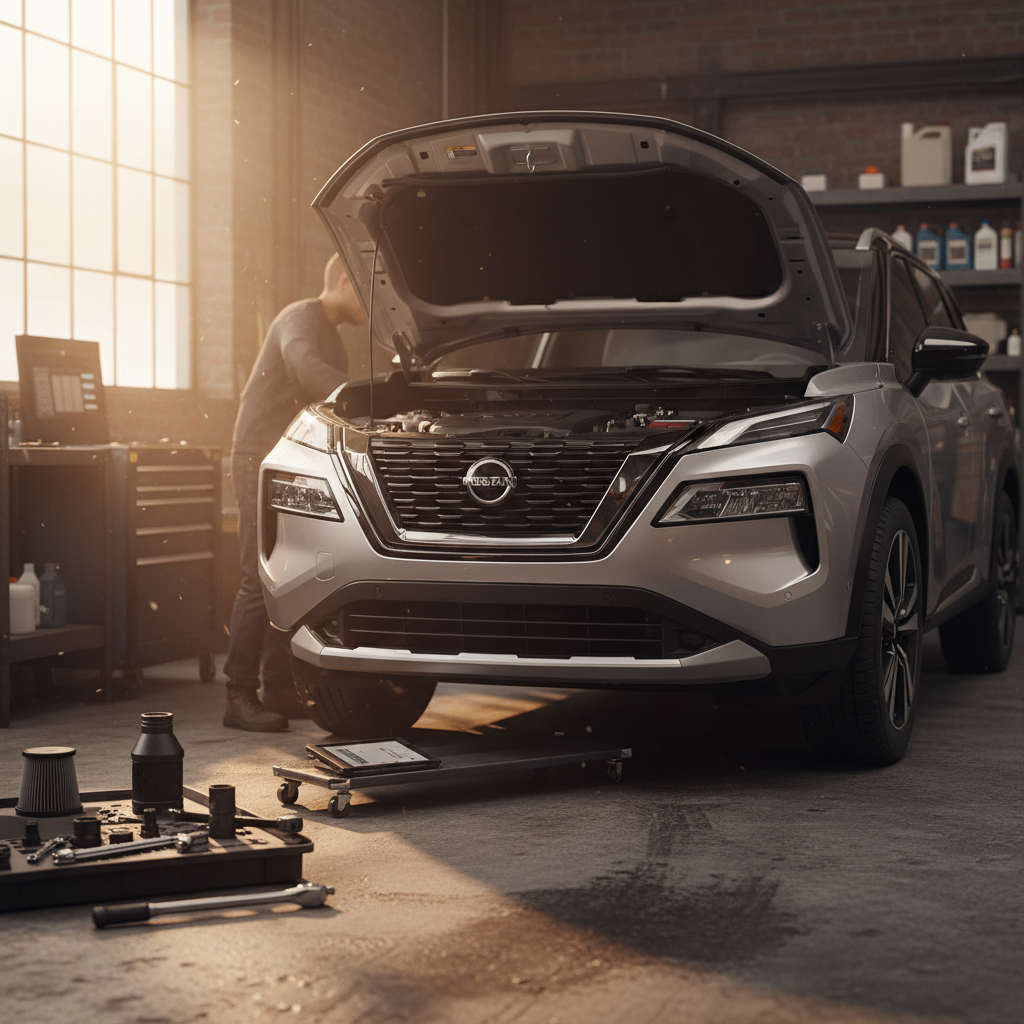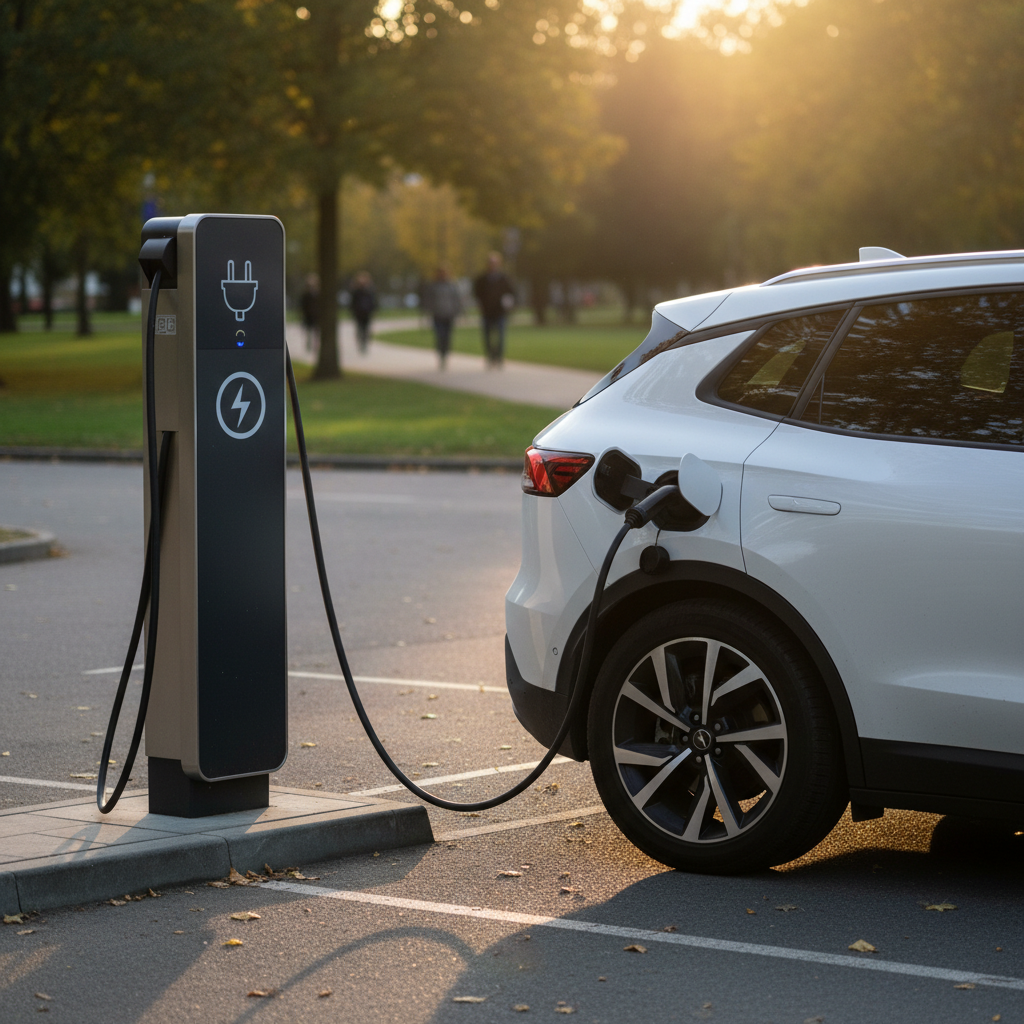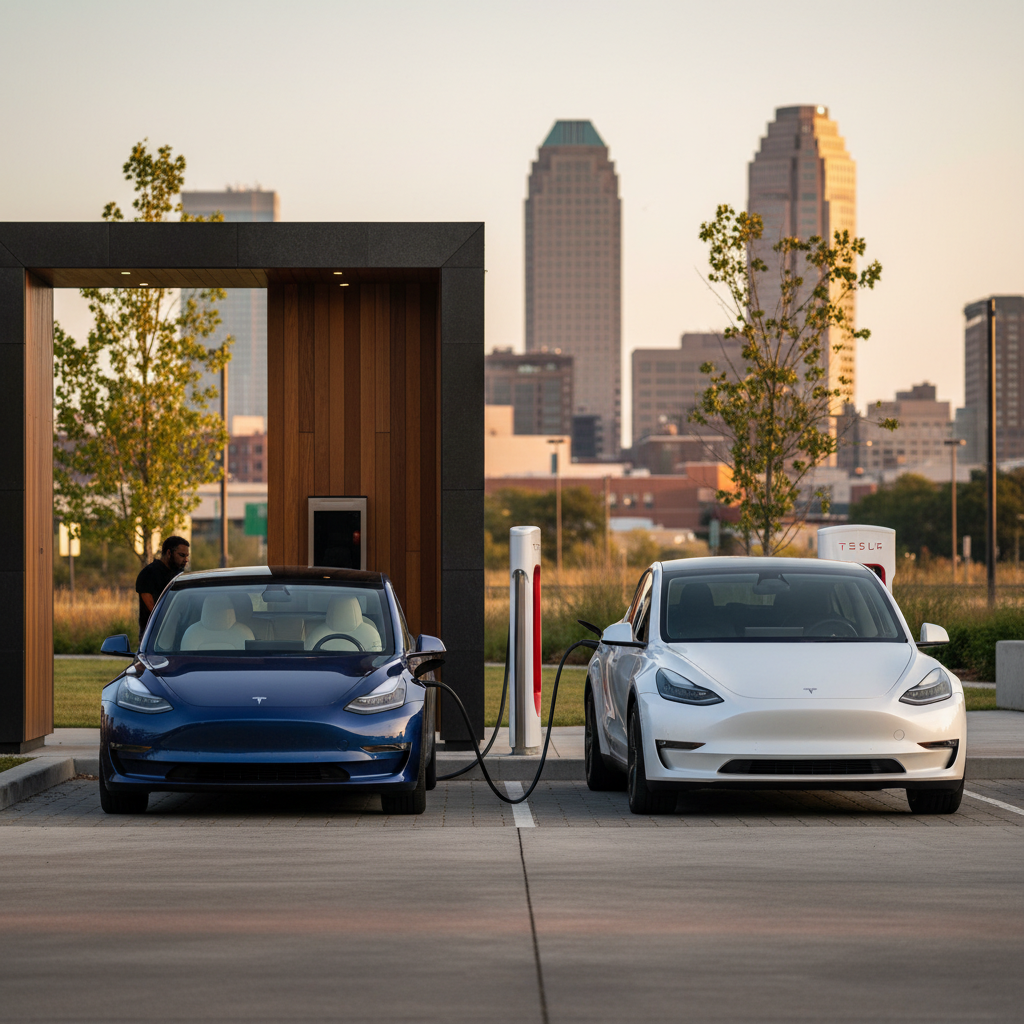If you’re Googling “Tesla motor used”, you’re probably doing one of two things: shopping for a used Tesla, or considering an EV conversion that uses a salvaged Tesla motor and drive unit. Either way, you’re asking the right question. The motor (and its integrated gearbox, inverter, and electronics) is the heart of a Tesla. Understanding how reliable it is, what it costs to fix, and how to evaluate one on a used car can easily mean the difference between a great deal and a five‑figure mistake.
Quick takeaway
Why people search for a “Tesla motor used”
- Used Tesla shoppers who want to know how risky an older Model S, Model 3, Model X or Model Y really is once the drive‑unit warranty is nearing the end.
- DIY builders looking at a salvaged Tesla motor and battery pack for a classic-car EV conversion.
- Owners of older Teslas trying to decide whether to keep a car beyond its warranty or trade into something newer with better coverage.
In this guide, we’ll focus on what matters most if you’re buying a used Tesla or any EV powered by a used Tesla motor/drive unit: real‑world reliability, typical failure modes, repair costs, warranties, and a practical inspection checklist you can actually follow.
How a Tesla motor and drive unit actually work
What’s in a Tesla “motor”?
When people say Tesla motor, they usually mean the entire drive unit, which bundles several components into one sealed assembly:
- Electric motor (induction or permanent magnet, depending on model)
- Single‑speed reduction gearbox and differential
- Power electronics / inverter that turn battery DC into AC for the motor
- Cooling system passages and sensors
If you’re buying used, you care about the whole drive unit, not just the spinning bits, because it’s all replaced as one piece if it fails.
Why this matters on a used car
In an EV, the drive unit replaces the engine, transmission, exhaust, and a ton of mechanical complexity. That usually means less routine maintenance, but when something major does go wrong, it’s typically:
- Electronics (inverter or control boards)
- Bearings, seals, or gear wear
- Cooling leaks or contamination
Instead of a series of smaller repairs, you’re often looking at a single big replacement, which is why understanding warranty status and prior repairs is so important.
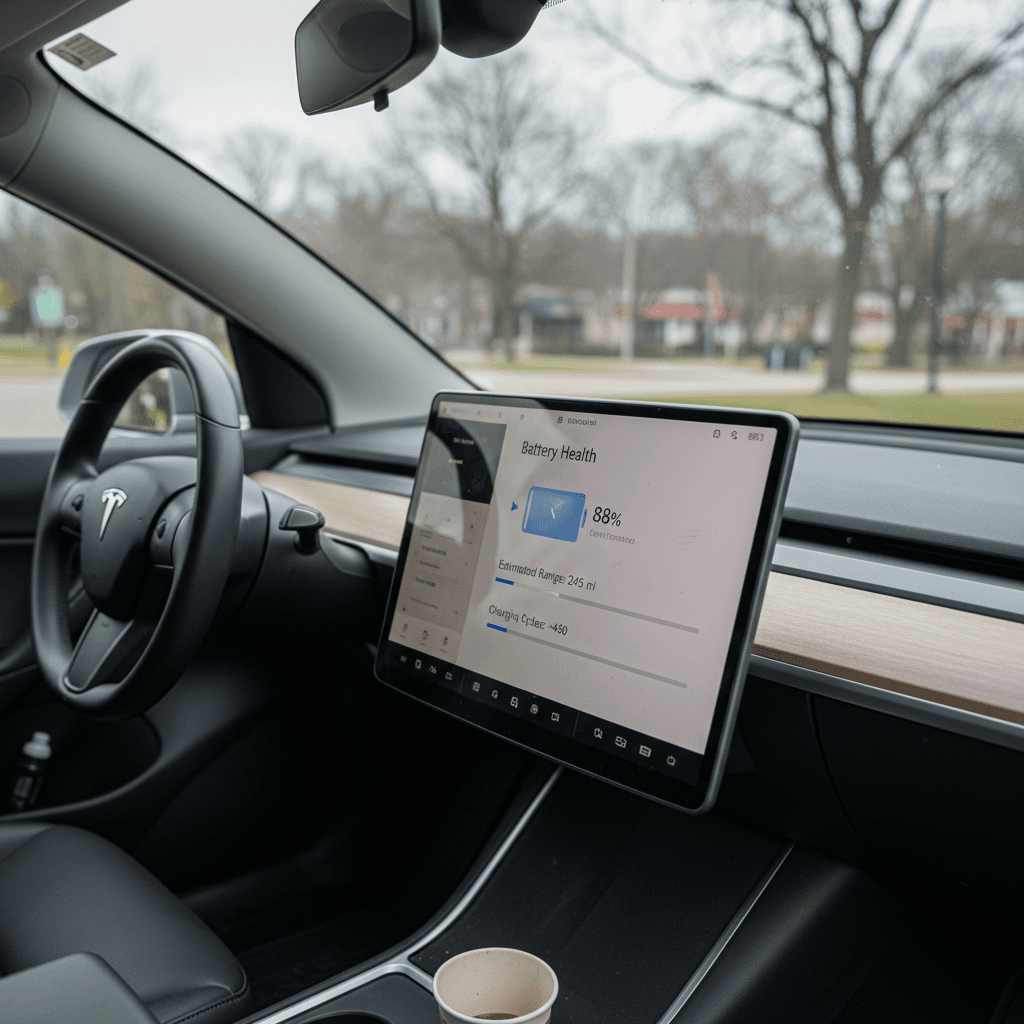
Used Tesla motor reliability: what the data really says
Used Tesla reliability snapshot
There are two different stories when you look at a used Tesla motor. On the one hand, modern Tesla drive units in Model 3 and Model Y are proving relatively robust, with far fewer failures than the first‑generation Model S cars. On the other hand, multiple reliability surveys in 2024 and 2025 have flagged 5‑ to 10‑year‑old Teslas as some of the less reliable used cars overall, mainly due to electronics, build quality, and some high‑cost powertrain repairs on early vehicles.
Watch out for early Model S drive units
Used Tesla motor risk by model generation
How worried should you be about the drive unit on different used Teslas?
Early Model S (2012–2015)
- Higher rate of drive‑unit replacements reported
- Listen for humming, whining, or grinding under load
- Check for service history showing drive‑unit swaps
- Only buy with strong warranty coverage or a deep discount
Later S/X & pre‑refresh
- Improved hardware vs. early cars
- Still more complex and heavier than 3/Y
- Watch for suspension wear and MCU issues alongside motor
- A clean service history is key
Model 3 / Model Y
- Simpler, newer drive‑unit designs
- Fewer reports of motor failures so far
- Most still within 8‑year drive‑unit warranty today
- Focus more on battery health and body condition
Big picture
Typical repair costs beyond the used Tesla motor
When shoppers worry about a used Tesla motor, what they’re really worried about is high, unpredictable repair bills. It’s worth putting some rough numbers around that. Actual costs vary by model, location, and whether Tesla uses new or remanufactured parts, but owner reports and repair guides give a decent ballpark.
Common Tesla repairs and ballpark costs (out of warranty)
These are typical U.S. retail ranges for out‑of‑warranty work at Tesla or independent EV specialists as of 2024–2025. Local pricing will vary.
| Component | Typical role | Approximate cost range | Notes on used‑car risk |
|---|---|---|---|
| Drive unit (motor + gearbox) | Propels the car | $5,000 – $7,000+ | Rare on newer 3/Y; more common on early Model S. Often replaced as a complete unit. |
| Main battery pack | Energy storage for driving | $13,000 – $20,000+ | Usually covered by 8‑year warranty; failures outside warranty are still rare but expensive. |
| MCU / touchscreen | Controls HVAC, media, settings | $1,500 – $2,700 | More of an issue on older S/X; 3/Y generally better but not immune. |
| Suspension control arms | Ride and handling | $1,000 – $2,500 | Wear item on heavier S/X, especially on rough roads. |
| 12V or low‑voltage battery | Powers accessories, computers | $150 – $300 | Normal wear item; expect a few replacements over a car’s life. |
| Charge port / door | Connects to charging cable | $300 – $600 | Annoying but not catastrophic; look for error messages or sticky doors. |
High‑voltage components like the battery and drive unit are expensive but usually covered longer under warranty than the rest of the car.
Why EVs still often come out ahead
Warranties on Tesla motors and drive units
Before you get too deep into noise‑hunting on a test drive, you should know exactly what warranty coverage a used Tesla motor and battery carry. This is your primary line of defense against a painful surprise.
Standard Tesla warranty coverage on motor & battery
What most used Tesla buyers are inheriting from the original owner
New vehicle coverage
- 4 years / 50,000 miles: bumper‑to‑bumper limited warranty
- 8 years: battery & drive‑unit warranty
- Mileage cap depends on model (100k–150k miles typical)
- Warranty is transferable to the next owner
Used Tesla from Tesla.com
- Includes Tesla’s own used‑vehicle limited warranty on top of remaining factory coverage in many cases
- Recently sold examples often add 1 year / 10,000 miles of extra bumper‑to‑bumper coverage
- Extended Service Agreements may be available while the car is still within the original 4‑year/50k‑mile window
Salvage titles and Supercharger bans
- Confirm the in‑service date (when the car was first delivered). This starts the 8‑year battery/drive‑unit clock.
- Check current mileage vs. the warranty cap for that specific model and trim.
- Get written confirmation of whether the car is eligible for Tesla extended coverage if you care about keeping it beyond 8 years.
- Avoid cars where Tesla notes the vehicle as “unsupported for Supercharging” or has flagged the battery/drive unit after a major accident.
Inspection checklist for any used Tesla motor
Let’s get practical. When you go to look at a car, or when you’re reviewing an inspection report, what should you actually do to vet a used Tesla motor and drive unit? This checklist assumes you’re not dismantling anything and you may only have one good test drive.
Used Tesla motor & drive unit checklist
1. Start with error messages
With the car in Park, check the touchscreen and driver display for any drive‑train, battery, or stability‑control warnings. Anything related to “power reduced,” “unable to maintain power,” or “service vehicle soon” deserves follow‑up.
2. Listen during gentle acceleration
On a quiet road, accelerate smoothly from 0–40 mph and again from 40–70 mph. A healthy drive unit should make a faint whir, not a loud grind or rumbling. A rising pitch is normal; clunks or harsh vibrations are not.
3. Listen during steady cruising
Hold a steady speed around 30–50 mph where motor speed is constant. A loud humming, droning, or rumble that changes with throttle (not road surface) can indicate bearing or gear wear in the drive unit.
4. Check for fluid leaks or corrosion
If you can safely look underneath, scan around the motor and rear subframe for wet spots, oily residue, or heavy corrosion. It shouldn’t look freshly steam‑cleaned; that can hide problems. Mild surface rust is common; drips are not.
5. Review service history for drive‑unit work
Ask explicitly whether the drive unit has ever been replaced. A documented, warranty‑covered replacement with proper Tesla paperwork can be a positive, especially on early Model S cars, but undocumented swaps are a red flag.
6. Scan for updates and recalls
In the car’s software menu, check that it’s running current firmware and that no pending recalls are listed. While many issues are software‑fixable, cars that lag far behind on updates can hide driveability issues.
Bring a second set of ears
Battery health vs motor health: which matters more?
You can replace a used Tesla motor. You can replace a battery pack. In both cases it’s expensive, but in practice, battery health tends to be a bigger driver of long‑term value than the motor itself.
Why battery health usually comes first
- Range defines usability. A Tesla that’s lost 20–30% of its range feels like a different car on road trips and in winter.
- Packs are pricey. Real‑world replacement bills in the teens of thousands of dollars dwarf most motor repairs.
- Degradation is slow but cumulative. How the car was charged and stored matters a lot over 8–10 years.
When you’re comparing two used Teslas, a car with excellent battery health and a clean history is usually worth more than one with a slightly quieter motor but an unknown pack.
When motor health jumps to the top
- You’re shopping early Model S/X with known drive‑unit issues.
- The car is near the end of its 8‑year drive‑unit warranty.
- You notice distinct whines, clunks, or vibrations under load.
- Service history shows multiple drive‑unit replacements on the same car.
In those cases, a used Tesla motor (and the warranty backing it) can be the deciding factor in whether to buy or walk away.
Where to buy used Teslas, and how Recharged is different
You can find a used Tesla motor bolted into a car almost anywhere: franchise dealers, Tesla’s own used inventory, independent lots, online classifieds, and EV‑only marketplaces. The risk isn’t that you can’t find one, it’s that you won’t really know what you’re getting.
Shopping options for a used Tesla
Pros and cons of the main channels
Traditional dealerships
- Easy to test drive locally
- Knowledge of EV‑specific issues varies widely
- Limited transparency into battery and motor health
- Aftermarket warranties may or may not cover EV powertrains well
Online classifieds
- Biggest selection and low prices
- Risk of “as‑is” sales and hidden issues
- Little recourse if the drive unit fails soon after purchase
- Inspections are entirely your responsibility
Recharged marketplace
- EV‑only platform with Recharged Score Reports for every car
- Battery health and high‑voltage systems independently evaluated
- Expert EV specialists to walk you through trade‑in, financing, and delivery
- Digital buying experience plus an in‑person Experience Center in Richmond, VA
How Recharged handles used Tesla motors
FAQ: Tesla motor used and used Tesla buying questions
Frequently asked questions about used Tesla motors
Bottom line on buying a used Tesla motor or used Tesla
A “Tesla motor used” can either be the backbone of a fantastic value, or a ticking time bomb if you buy blind. The key is to shift your mindset from fear of the unknown to priced and managed risk. Understand where the real trouble spots are (early Model S drive units, out‑of‑warranty packs, salvage titles), insist on clear documentation and battery health data, and lean on specialists who live and breathe used EVs.
If you’re ready to shop, platforms like Recharged exist to do the heavy lifting for you: from verifying battery and motor health with our Recharged Score, to offering financing, trade‑in options, and nationwide delivery. That way, you can focus less on worrying about what might be lurking inside a used Tesla motor, and more on enjoying the instant torque it delivers once it’s in your driveway.
